Watchman comment: Corbett's punch line is near the end of the article concerning Anthony Sutton's tremendous research on the military industrial complex and Wall Street.
The military transfer of technology and what we now call the "deep state" may have been what President Eisenhower was referring to in his farewell message to the American people. (See the two videos below)

by James Corbett
corbettreport.com
April 20, 2019
corbettreport.com
April 20, 2019
Have you seen the PLA
Navy's latest whizzbang terror toy? Described as a "tactical laser
system," it was recently featured in a PR puff piece on China's
state-owned mouthpiece channel, CCTV. According to reports, it will be
deployed on the PLA Navy's Type 055 destroyers as
a replacement for the fleet's old HHQ-10 surface-to-air
missiles.
Which is all well and
good, but let me ask you again: Have you seen it? I mean, have
you actually looked at it? Because when you do, you might notice something
interesting. Namely, it bears a striking resemblance to the U.S. Navy's Laser Weapon System (LaWS).
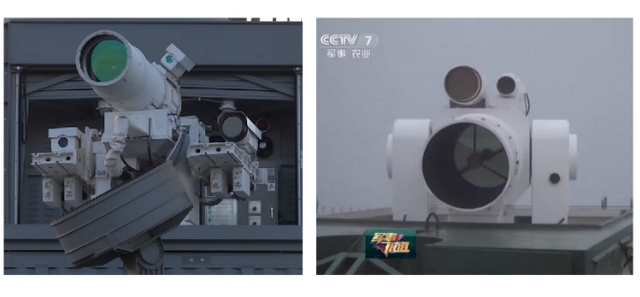
The LaWS is on the
left and the Chinese laser system is on the right. Or is it the other way
around? It's hard to tell the difference.
But it's not just
this laser weapon. From drones to stealth jets to railgun prototypes, it seems
all of the latest and greatest weaponry in the Chinese arsenal is suspiciously
similar to (or is an exact duplicate of) an item in Uncle Sam's arsenal.
For instance, here's
the Shenyang J-31, China's
fifth generation stealth fighter:
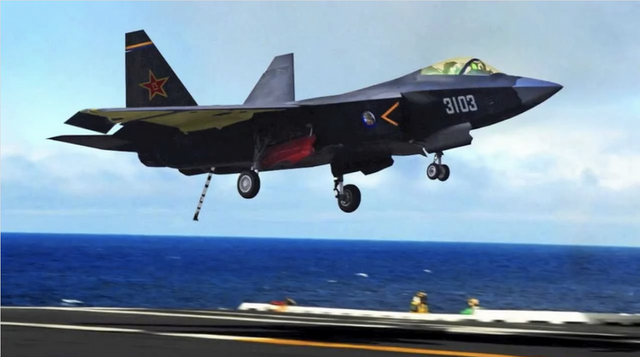
And here's the good
ol' Lockheed Martin F-35B Lightning II:
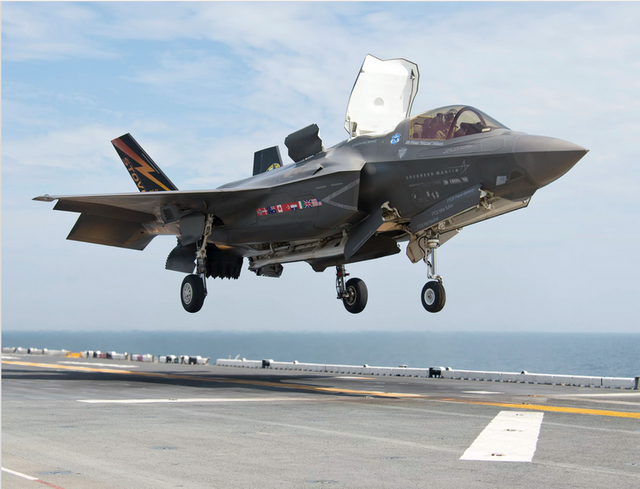
Or compare the
Chinese Lijian Sharp Sword Unmanned Combat
Air Vehicle:
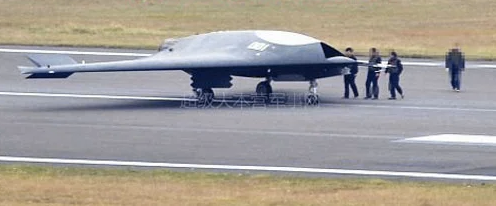
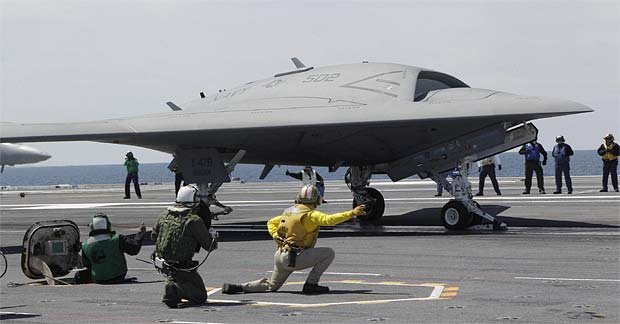
Or take the Sunward SVU-200 Flying Tiger unmanned
helo:
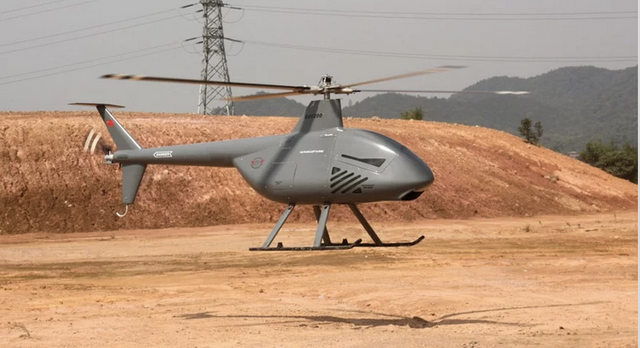
And play a game of
"spot the similarities" with Northrop Grumman's very own MQ-8 Fire Scout unmanned helo:

No, your eyes aren't
deceiving you; from fighter jets to drones, from Hummers to rifles, it's a well-known
fact that much of China's military technology is copied from American designs.
In fact, there are entire galleries online
devoted to showcasing the phenomenon (yes, that's galleries plural).
The only question is:
Where are the Chinese getting the designs from, and why isn't this at the top
of the "national security" newsfeeds instead of that made up nonsense
about Russian bogeymen? Or, as the yellow journalists at
Hearst's Popular Mechanics puts it, if the video of
China's CH-4B drone—which shows information being provided to the drone
operator in English—is legitimate, "it begs the question whether or not
software and other technology originally from the United States and other
western countries is flying on Chinese military aircraft."
So what's happening
here? One answer to this question is that China is simply reverse engineering
American technologies . . . somehow. But that "somehow" is important.
Are the Chinese engineers merely looking at photos of American vehicles and
copying the outer design? Downloading press kits from US contractors' public
websites and trying to match the specs? Stealing planes and guns and drones
from the US and smuggling them back to China for reverse engineering? Hacking
the blueprints for these technologies from top secret databases?
Indeed, all sorts of
explanations have been offered for the remarkable similarities between American
and Chinese weaponry. The official story of the
Chinese J-20 stealth fighter jet, for example, is that it was copied from an
F-117 Nighthawk that was downed during NATO's bombing campaign in the Kosovo
war. And the Z-20 medium lift security helicopter—China's answer to America's
iconic Black Hawk chopper—was allegedly copied from a
combination of civilian Black Hawks that China purchased in the 1980s and some
military versions that they were given access to by Pakistani intelligence.
By far the funniest
explanation comes from Popular
Mechanics:
"The United States and China both have
nearly identical requirements for many kinds of weapon systems. And nearly
identical requirements can lead to nearly identical outcomes. The eye, for
example, is estimated to have evolved separately between 40 and 65 times in the
entire history of life on Earth. Often there's just so many ways to do
something."
That's right, folks,
part-for-part identical designs (right down to identical contours on cockpit
windows and English language software on tracking systems) just spontaneously
occur because "nearly identical requirements can lead to nearly identical
outcomes." That has to be the stupidest coincidence theory I've read in a
long time.
The more popular
allegation is that it's all down to that omnipresent threat of the digital era:
cyberhackers.
It has long been
alleged, for instance, that China's J-31 stealth fighter was constructed from
stolen F-35 blueprints. Why anyone would want to copy the plans for the world's most expensive jalopy is
anyone's guess, but the story goes that
Chinese hackers infiltrated US military systems in 2007 and 2008, pilfering
several terabytes of data on the jet in the process. A tranche of Snowden
documents later corroborated the story, so
you know it must be extra super-duper true.
These stories are the
bread and butter of those seeking to kick off WWI part three between the
modern-day British Empire (the US) and the modern-day Huns (the Chinese). (If
you're confused by this analogy, please consult my presentation on Echoes of WWI.) "The
dastardly Chinese hackers are stealing our military! We need to strike while we
still can!"
But there's a much
more ominous possibility that remains unexplored in the mainstream scare stories
about the Chinese bogeyman: China is being given these technologies
deliberately.
As outlandish as this
idea might seem to the average normie, it has a clear historical precedent.
Antony Sutton spent his time at the Hoover Institute researching technology
transfers from the US to the Soviets. After publishing the third volume of his
study on the subject, National
Suicide: Military Aid to the Soviet Union, he was shown the door
and never permitted back into the ivory tower of "respectable"
academia. The truth that he had uncovered about the US role in helping to arm
and equip the very Red Menace that it pretended to oppose was simply too
explosive. He had to be shut up, and the best way to do it was to kick Sutton
out of the academy and pretend that neither he nor his meticulously-documented
research existed.
Sutton lays his
grisly thesis bare in the preface to his study: "The 100,000 Americans
killed in Korea and Vietnam were killed by our own technology." He then
goes on to elaborate exactly how this is so. For instance, he details exactly
how American technology supplied to the Soviets was then used against American
forces in the Korean War:
"The 130,000-man North South
Korean Army, which crossed the South Korean border in June 1950, was trained,
supported, and equipped by the Soviet Union. This army included a brigade of
Soviet T-34 medium tanks (with U.S. Christie suspensions). The artillery
tractors that pulled the guns were direct metric copies of Caterpillar
tractors. The trucks were either from the Henry Ford-Gorki plant or the ZIL
plant. The North Korean Air Force had 180 Yak planes built in plants with U.S.
Lend-Lease equipment; these Yaks were later replaced by MiG-15s powered by
Russian copies of Rolls-Royce jet engines sold to the Soviet Union in
1947."
This seems
incomprehensible from a surface-level analysis. After all, the United States
and the Soviets were mortal enemies locked in a struggle for control of the
planet. Why on earth would the US have willingly aided and abetted its greatest
foe? The question answers itself: They created a foe precisely so they would
have a great power to "struggle" against. The Cold War was the
pretext for the building up of the military-industrial complex abroad and the
security state at home.
And now the same
financial interests and powers-behind-the-throne are trying to ignite a Cold
War 2.0 using the same template. We can see it happening before our very eyes
with the revelation of each new piece of "Chinese" (American)
weaponry. And yet no one is reporting it.
Take the case of the Dongfeng EQ2050,
better known as the "Chinese Humvee." AM General "gifted"
Beijing a Humvee back in the 1980s in the hopes that the Chinese would be
persuaded to buy more. Instead, the Chinese took it apart and built their own
part-for-part copy. When the PLA wanted to start mass producing the vehicles in
the 2000s, they faced a problem: they didn't have the parts. So what did they
do? They just bought them from AM General, who were perfectly happy to supply them.
The one part that the Chinese couldn't source was the engine, a diesel engine
made by Cummins. Unfortunately for Beijing, they couldn't buy these engines
directly because they were embargoed along with other "military
goods" after the 1989 Tiananmen Square incident (which is a whole other story). So
they simply said they needed them to produce a civilian version of the Humvee,
which was good enough for Uncle Sam. The Chinese company that's producing the
EQ2050 displayed a civilian version of the vehicle at some exhibitions, but
they have never actually been on sale in China. Military versions of the
vehicle have been produced, however, complete with Cummins
diesel engines. Funny that.
For those familiar
with my podcast on China and the New World Order, this will be a familiar
story. As I documented in that podcast, military technology transfers from
America to China have been ongoing for decades now, with everything from
American satellite technology to
American missile technology (via
Clinton) to American semiconductor technology (via
Bush) ending up in Beijing's hands.
And now the Chinese
are building a carbon copy of the American military, jet by jet, drone by
drone, rifle by rifle.
Where is the Antony
Sutton of today who will take up the mantle and blow the lid off this story?


No comments:
Post a Comment